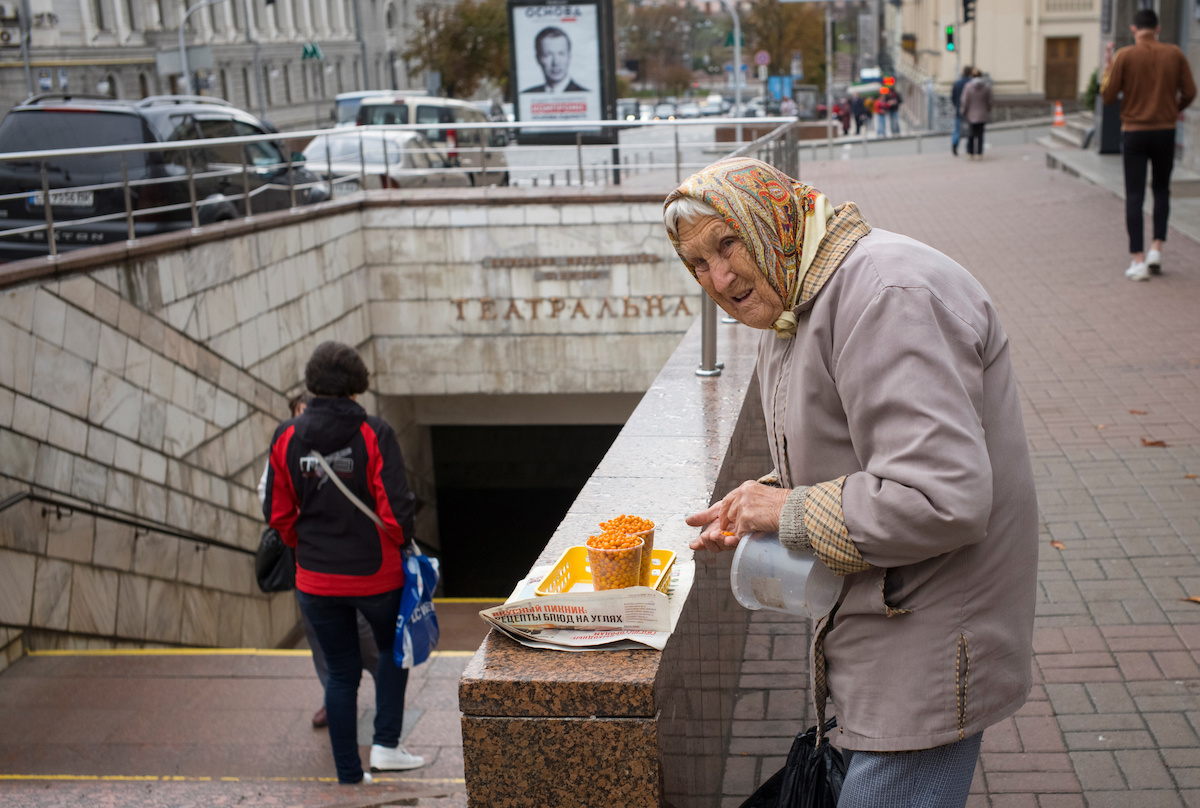Ukraine and Russia: enemies at war or trade partners?

On 1 November 2018, Russia imposed long-promised sanctions against individual Ukrainian citizens and companies.
This “blacklist” includes a total of 322 businessmen and 68 companies. However, the list does not include the President of Ukraine, Petro Poroshenko, nor his companies, although the media and many politicians in Ukraine claim that his businesses are active on the Russian market.
This exemption from Moscow’s sanctions might do him harm in the upcoming 2019 presidential elections.
• Sanctions threaten Putin’s entourage
• Op-ed: Russia faces irreversible isolation
Who has been placed under sanctions
Russia’s Novaya Gazeta reports that Ukraine’s Minister of Internal Affairs, Arsen Avakov, the head of the Security Service of Ukraine, Vasily Gritsak, and the head of the Ukrainian presidential administration, Igor Rainin, were included on the list.
Judges of the constitutional court of Ukraine, deputies of the Verkhovna Rada (unicameral parliament) of the last convocation, important Ukrainian businessmen, officials of the presidential administration, heads of executive authorities and large companies, were also placed on the list.
The sanctions include freezing accounts, securities and property on the territory of the Russian Federation, as well as a ban on the withdrawal of their capital from Russia.
Opponents and friends
Russia imposed sanctions against Ukraine in response to similar moves by Kiev: starting in 2014, Ukraine, following Europe and the United States, introduced prohibitive measures for Russian companies and banks on several occasions.
However, Russia is Ukraine’s main trading partner.
Kiev accuses Moscow of leading an undeclared war against Ukraine – but at the same time Russia is not only one of the biggest importers to Ukraine, but continues to grow in this regard.
Now Russia ranks second to China in the supply of goods to Ukraine.
What is the relationship between sanctions and the upcoming elections in Ukraine?
The campaign for the next election of the president of Ukraine has already started and the main players have declared themselves. In the spring of 2019, parliamentary elections will take place.
A strange combination of war and business is one of the main elements of discontent of Ukrainian society against the current government and personally against President Petro Poroshenko, who is accused of doing business in Russia. His rivals will make use of this.
In mid-September, more than 40 deputies of the Verkhovna Rada, including two presidential candidates – Yulia Tymoshenko and Viktor Chumak – sent an appeal to Poroshenko.
They demanded that the head of state “publicly explain” all the facts pertaining to his businesses that have been made public by Ukrainian and foreign media and “have criminal elements”.
The current president was offered to refute or confirm the presence of his undeclared businesses in Russia, his cooperation with Russian enterprises and the presence of shadow business partners among Russian oligarchs.
The president of Ukraine has not responded to these charges.
The only enterprise Poroshenko has in Russia that is reliably known is the Roshen factory in the Russian city of Lipetsk. However, it was closed in January 2017.
Moscow’s trump cards
Novaya Gazeta writes that in this situation Moscow has the opportunity to influence the ratings of Ukrainian politicians, and the current president most of all.
Had the Ukrainian president been the first person on the sanctions list, then it would mean that he and the shareholders of his companies definitely have something to lose in Russia. Poroshenko is not, however, on the blacklist. On the other hand, his eldest son Alexey, is. This fact may be interpreted by the opponents of the Ukrainian president as evidence of his having a “contractual relationship” with the Kremlin.
Russian presidential spokesperson Dmitry Peskov explained: “Traditionally, presidents are not included in the sanctions lists,” and added that countermeasures were introduced in the hope that Kiev would show the political will to normalise relations, which is not yet visible.



















